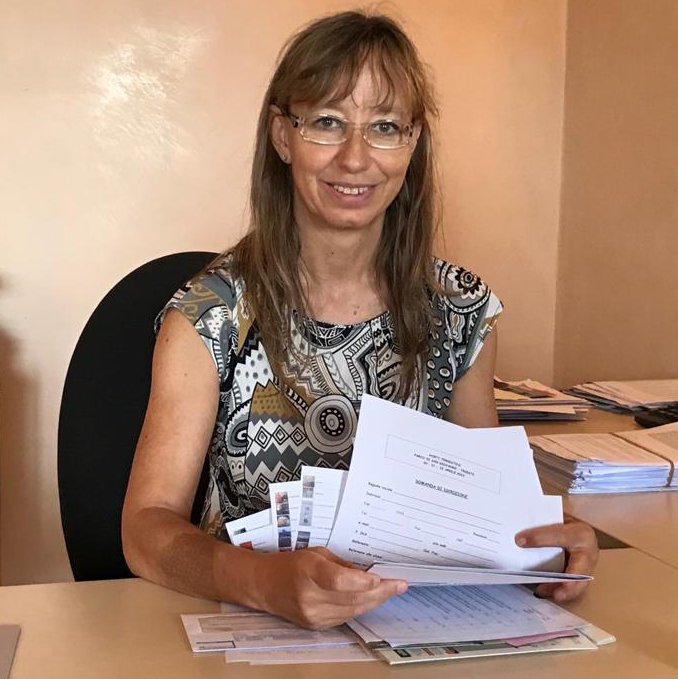Cultural Administrator
Professional opportunities

Alina Del Fabbro
Cultural Administrator
Graduate in Archaeology and Ancient History
University of Udine
Alina Del Fabbro
Cultural Administrator
Graduate in Archaeology and Ancient History
University of Udine

My name is Alina Del Fabbro. After a Bachelor's Degree in Cultural Heritage, I have graduated two other times, one in Archaeology first, then in Ancient History. I now work as a Cultural Administrator at E.R.P.A.C., an institution preserving and promoting the cultural heritage in Friuli Venezia Giulia.
The Interview
What led you to choose Humanistic Studies?
I have always felt deeply drawn to the ancient world, to archaeology and history, and this has motivated me to deepen and enhance my knowledge about those subjects.
Have you ever been abroad during your university education?
No, unfortunately I have not.
What role does your humanistic education play in your current occupation?
During my professional life, I was given the chance to take on different positions within the cultural sphere. The institution where I work manages cultural events on behalf of the Region, such as concerts, theatrical performances and exhibitions. Let's consider this last case, for example: the organization of an exhibition has several phases, from requesting to borrow items from museums, galleries or privates, to planning transportation and settings, and securing appropriate insurance. It is also important to cooperate with publishers, as regards catalogues, leaflets etc. It does not matter how great the event is supposed to be, even the smallest ones must be constantly followed, in every detail. A specific training for such a variegate activity does not exist yet. Still, my humanistic education allowed me to build my career on solid foundations.
Do you think that humanistic studies could pave the way for various careers?
In my opinion, Humanities enable a strong mental flexibility, which favours the approach to diverse professions, even though they are not directly pertaining to the subjects once studied.
What would you recommend to young people struggling with the choice of the right study programme?
It is important to find a programme which embodies what you are passionate about. This could become a crucial starting point, also in the light of the growing importance of conservation, promotion and enhancement of our cultural, historical and literary heritage. However, everyone's future working life depends also on how ready one is to get involved: it is not only a matter of résumés and titles.




